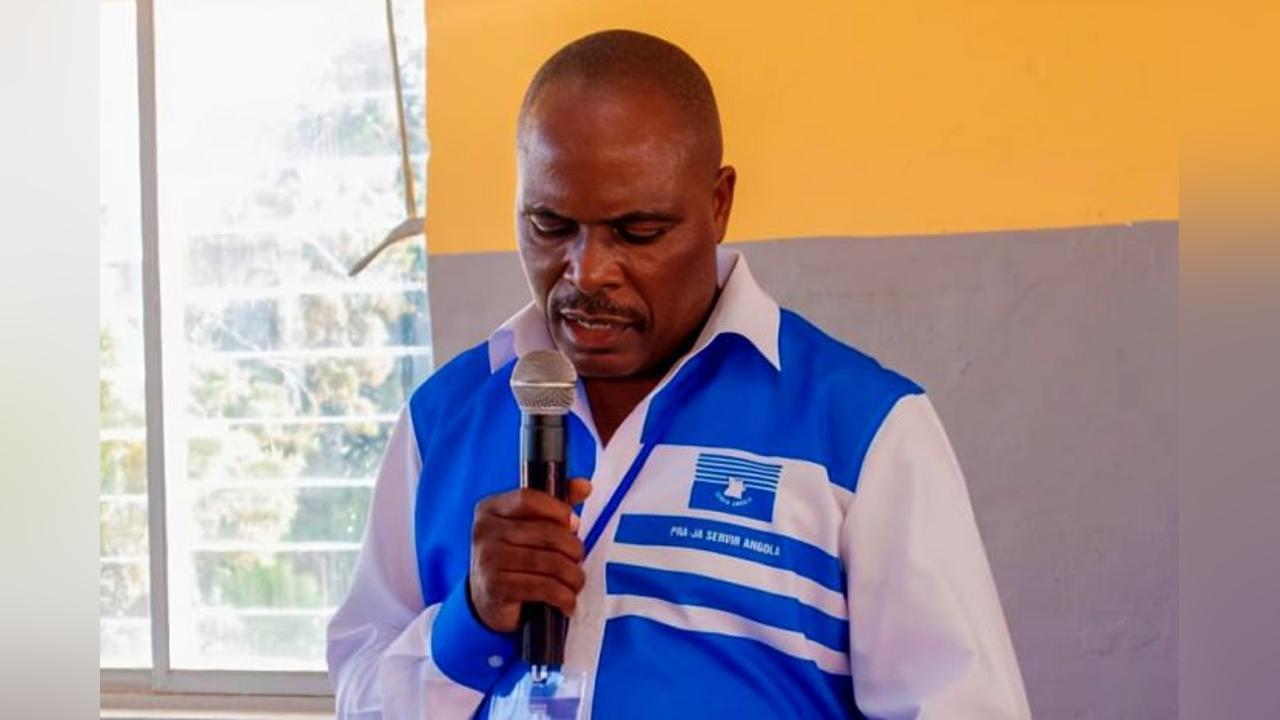Africa-Press – Angola. The general secretary of PRA-JA Servir Angola, Américo Chivukuvuku, defended yesterday, in the province of Cuanza-Sul, the need to carry out profound reforms in the Angolan electoral system, pointing out alleged inequalities in the treatment between political parties and warned that the fairness of the elections cannot be assessed only on voting day, but throughout the entire process leading up to the vote.
According to the politician, who was speaking during a meeting with the local population, “our elections have not been fair because, throughout the process, there has been no equal treatment.”
Américo Chivukuvuku cited as an example the media advantage of the ruling party, whose activities, he said, “are broadcast daily on public television and radio, while other parties appear only occasionally.”
Chivukuvuku stated that “a fair process requires equal treatment” and reinforced that freedom of choice implies that “no one can be harmed or privileged because of their political choice.” He also denounced alleged situations in which citizens’ access to employment is conditioned by the requirement of party affiliation.
In response to doubts about PRA-JA’s ability to govern, the leader resorted to the “Theory of Social Change,” arguing that “nothing is permanent, everything changes.” He compared, for example, the five-century-long Portuguese colonial presence and the “single-party regime in Angola,” which have also come to an end. “The emperor has been in power for 50 years, but he won’t stay for another 50. He will fall, because change is inevitable,” he said, convinced that his party could assume government in 2027.
End hunger and unemployment
The secretary-general of PRA-JA Servir Angola emphasized that the main objective of the new political structure is to “serve Angola and Angolans,” highlighting the fight against poverty, unemployment, hunger, and social exclusion as priorities. “Our country is not doing well as it is. We need to end hunger, and this will only be possible with a serious commitment to agriculture,” he emphasized.
For Américo Chivukuvuku, the expansion of family farming must be accompanied by policies to support farmers, including the provision of seeds and fertilizers, as well as the rehabilitation of access roads to facilitate the flow of produce. “We spend thousands of dollars importing products that could be produced here. This logic needs to be reversed,” he argued.
Health and basic sanitation
In the health field, the politician warned of the high mortality rate, evident in the “daily traffic jams in Luanda’s cemeteries,” and argued that the first step should be investing in basic sanitation as a way to combat diseases such as malaria and cholera. He also highlighted the need to ensure good nutrition, a hospital network closer to communities, and better salaries for doctors, with specific incentives for those who accept work in rural areas.
In his remarks, Chivukuvuku also highlighted training as a top priority for youth. “If young people are trained, they can find a job; if they have a job, they’ll have a salary and a quality of life,” he stated, defending the need to direct training toward technical and scientific fields, which are most readily available in the job market.
Local authorities as a political priority
The leader once again spoke out against the new Political-Administrative Division approved by the National Assembly, believing that the priority should be the implementation of local government. “The mayor must be accountable to the population and be evaluated on his performance. If he governs poorly, he’s out. That’s transparency and democracy,” he stated.
Regarding his vision for government, Chivukuvuku revealed that the recent PRA-JÁ congress had already created a committee, headed by economist Carlos Pinho, tasked with developing the government program. He also highlighted the importance of a national pact between political and social forces to ensure stability.
“Our president argued that the leaders of the different parties and churches should sit down, discuss the country’s problems in depth, and leave with consensual solutions, which would then be implemented by any elected government. Only then will we have stability and development,” he stated.
For More News And Analysis About Angola Follow Africa-Press






